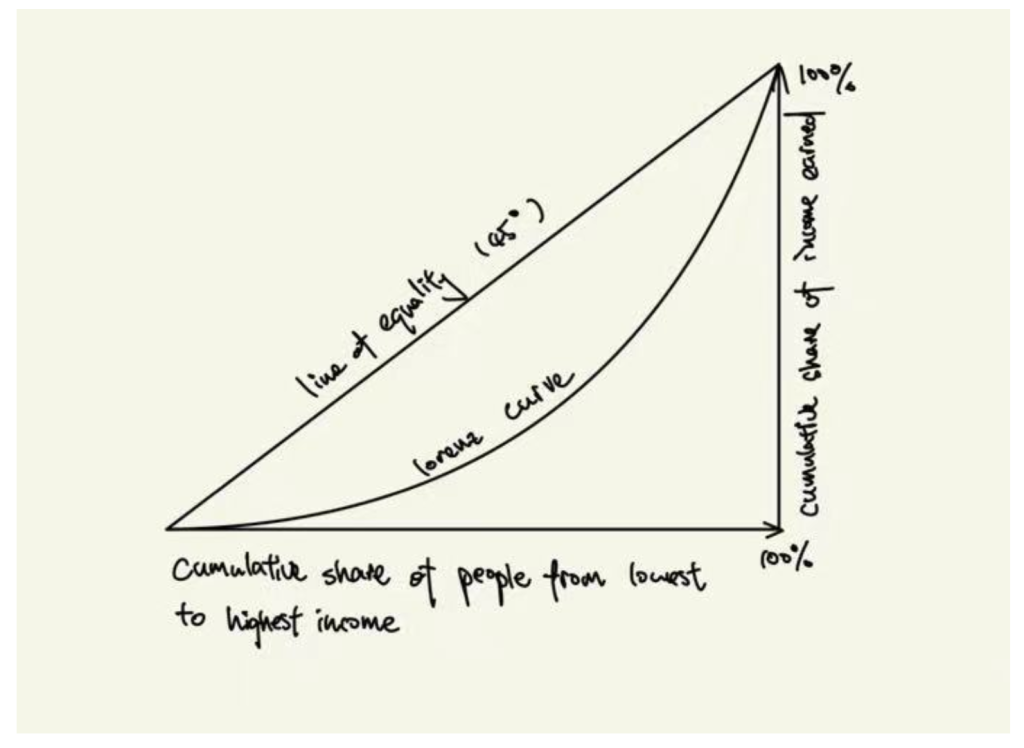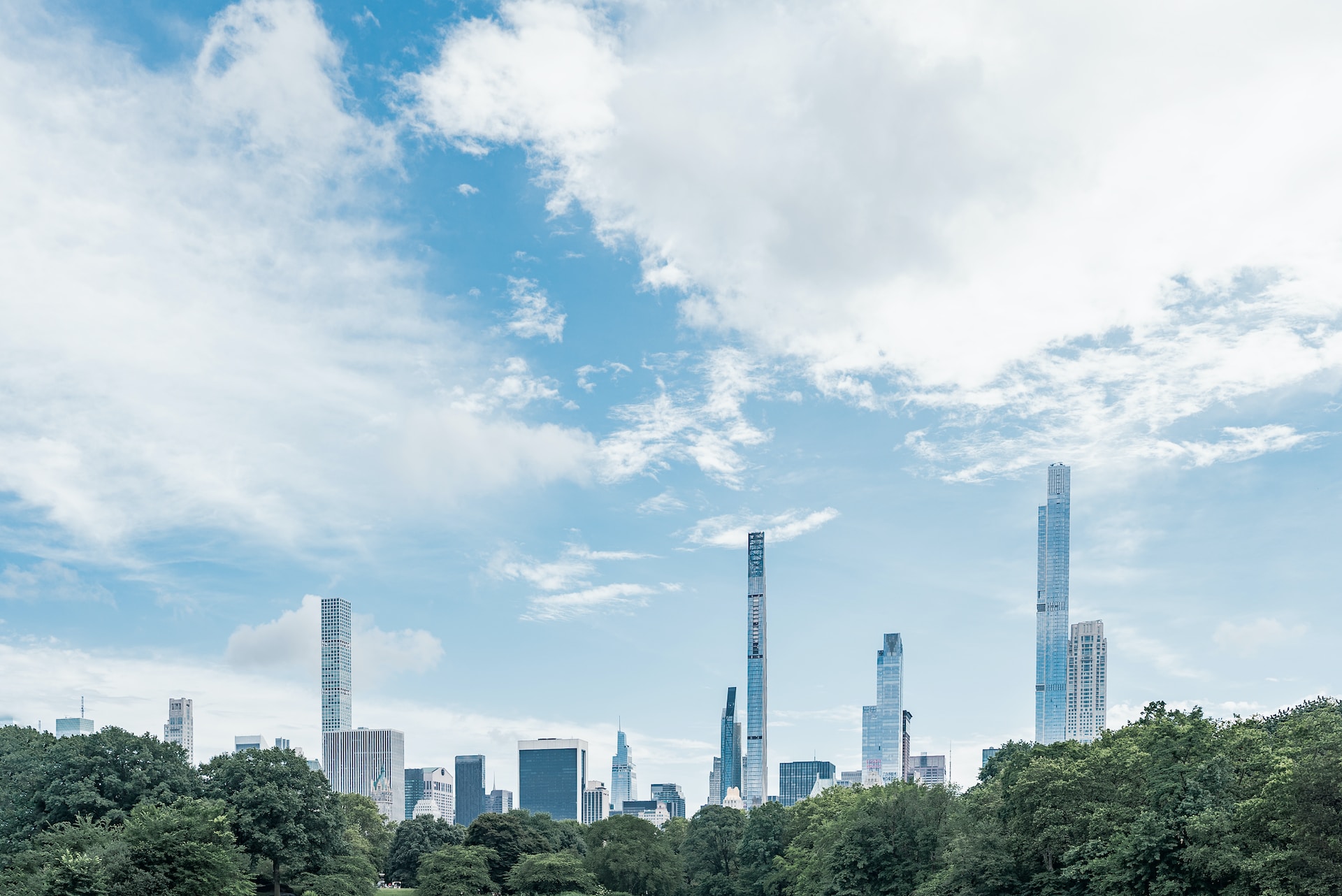
Author: Mike Wu
Pomfret School
Billionaires, (Merriam-Webster, 2023) are those whose wealth is estimated at a billion or more dollars, pounds, or other monetary units. These people normally possess more than just money, but also may offer contributions to society by a series of philanthropy measures. Billionaires are able to gain status in society, being recognizable to others, by providing general wellness to the community that they thrive in. In recent years, the concentration of income and wealth has become a contentious issue, prompting discussions on income inequality, social justice, and power dynamics within societies. As part of this discourse, the idea of banning billionaires has emerged as a potential solution to address the growing income gap and promote a fairer distribution of resources. I define “banning billionaires” as the government taking away their money and physically limiting their income in the future by freezing their bank accounts if exceeding the billion standard. Once you reach a billion in assets, 20% is automatically seized by the government and redistributed. I begin by arguing that banning billionaires would reduce innovation and risk-taking because the rewards of risk-taking are reduced by the introduction of a ceiling on how much people can profit. Then, I present an argument that banning billionaires would reduce charitable contributions since billionaires can simply donate more money than regular people, which can bring significant benefits to the rest of society. Moreover, I present a counter argument that banning billionaires can potentially lead to a fairer distribution of resources, lowering income inequality and providing opportunities to marginalised groups. However, I argue that banning billionaires would not make a difference in reducing wealth inequality since there will still be a societal hierarchy. In reality, there is no good solution to how this extra money collected from the billionaires will be shared or stored. By banning billionaires, everyone might seem more equal to each other since society will experience a smaller income gap because there will be a more equal distribution of income. Yet, there will still be a class system in the society and a majority of wealth will still belong to the minority income of people. Therefore, I conclude that there will be a negative outcome on the economy and society if we banned billionaires.
Banning billionaires would likely discourage innovation by removing key incentives for risk- taking. Billionaires, with their substantial wealth, often serve as catalysts for innovation by investing in research and development, supporting startups, and funding high-risk projects. Their financial resources allow them to take risks and explore unconventional ideas that others may shy away from. Within the capitalist ideology, high risks often come with high rewards. Therefore, there is an incentive to take risks and explore unconventional ideas. Currently, only people with enough money are willing to be the risk-takers since they are less concerned about the financial problem because billionaires have a greater financial cushion to fall on if their idea is not profitable. Therefore, they are more willing to take risks and innovate. People with less disposable income do not have the same financial protection and so are less willing to take risks which would push technological boundaries. For example, Elon Musk, CEO of Tesla, Inc and SpaceX, devoted his time and money to innovating a new way of green transportation and an exploration of the outer world beyond our imaginations. Take Space X for example. Musk is willing to spend billions of dollars on inventing auto- return rockets that can benefit innovation in space transportations.
Without enough money supporting his innovations, Musk would not have done the same, and without his risk-taking move, human technology would not have advanced in a short period of time. Similarly, by accumulating significant wealth, billionaires also become symbols of achievement and success, inspiring aspiring entrepreneurs to push the boundaries of innovation. Billionaires often lead companies that compete in the market, driving competition and fostering a climate of innovation. Their success acts as a benchmark for others to strive for and encourages a culture of entrepreneurial risk-taking. Furthermore, billionaires’ investments in emerging technologies and industries provide crucial capital for innovation, enabling the scaling up of innovative projects. By banning billionaires, the ecosystem of innovation would suffer a significant blow, as the financial incentives, role models, competition, and investment capital they bring would be greatly diminished. Previous billionaires may have less incentives to take risks because they have less disposable income to fall back on if things go wrong. Overall, without enough innovation, the wheel of history would not progress in a positive way for human society. Therefore, banning billionaires would cause a negative impact on innovation and risk-taking in society.
Banning billionaires would have a significant negative impact on charitable contributions to society, affecting various aspects of philanthropy and economic dynamics (Forbes, 2022). Firstly, by implementing policies that restrict the accumulation of excessive wealth, the ability of billionaires to make substantial charitable donations would be curtailed. Without billionaires, there would be a reduction in the number of individuals with the resources to contribute significant sums to charitable causes, potentially leading to a decline in overall philanthropic funding. Secondly, the desire to make a positive impact can serve as an incentive for billionaires to engage in philanthropy. They often view charitable giving as a way to give back to society or improve their public image. Their philanthropic contributions also support research and development in areas such as healthcare and sustainability, bringing positive contributions to society. However, if billionaires were banned, this incentive would be diminished, potentially resulting in a decrease in the motivation to make large charitable contributions. Even though billionaires are not the only ones that desire to make a positive impact, they are the ones that have the ability to donate in large amounts to the society, while others cannot due to their lack of substantial wealth.
Furthermore, billionaires play a crucial role in driving economic growth and job creation. They often invest their income in businesses and startups, which can stimulate economic activity. By banning billionaires, there could be adverse effects on the overall economy, leading to reduced job opportunities and economic growth. This can impact the financial resources available for charitable causes, as decreased economic activity can result in lower tax revenues and reduced government funding for social wellness programs and charitable initiatives. For example, without billionaires, there will not be enough money donated to business, especially start-up companies, since billionaires often invest their money and help support the continuation of these new companies. Without enough funding, many of these novel companies fall short despite their brilliant ideas that can benefit society. Overall, banning billionaires causes negative impacts on economic growth, discourages novel companies, and suppresses job creation.
Another challenge lies in the effective redistribution of income. While the intention behind banning billionaires may be to achieve a more equitable distribution of resources, the implementation of comprehensive and efficient mechanisms for income redistribution can be complex. There are no practical ways to distribute income fairly, for example, do the poorest receive the largest amount of distribution, or does everyone receive the same distributions? If these efforts fall short or encounter inefficiencies, such that some social group publicly disagree with the current policies, it may result in a decreased pool of resources available for charitable causes. If there are disagreements, the money may not be redistributed at all such that there is no reduction in income inequality. Lastly, billionaires often provide invaluable leadership, expertise, and strategic guidance to charitable organizations, since almost everyone is curious as to how they were able to become billionaires so will often listen to and follow billionaire’s advice. Their experience and knowledge in philanthropy can greatly contribute to the success and impact of charitable initiatives. Banning billionaires would potentially lead to a loss of their philanthropic leadership, depriving charitable organizations of their valuable contributions and potentially hindering their ability to address societal challenges effectively.
On the other hand, proponents argue that banning billionaires could lead to a fairer distribution of resources, addressing income inequality and providing opportunities for those who have been historically marginalised. By redirecting the income towards public services, social welfare programs, and addressing societal challenges, it is believed that the overall well-being of the population could be improved. With all the extra money received from the billionaires, society can fund programs that support marginalised groups instead of this money being held by the rich. Additionally, some proponents argue that the redistribution of income could stimulate economic demand and promote innovation by providing resources to a broader segment of the population, in which everyone can have an idea of an innovation, but due to lack of resources, they may not try to turn that idea into existence. However, with the redistribution of income, this money can go to the people that had innovative ideas without enough funding, and support the broader segment of the population for more innovations. Overall, banning billionaires may have positive effects for society in more fairly distributing resources, lowering income inequality, and providing more opportunities to everyone.

However, banning billionaires alone does not guarantee the elimination of an upper class within society. The presence of an upper class is not solely reliant on the existence of billionaires as income is not the only thing that differentiates the highest socioeconomic classes from everyone else. Instead, class also encompasses a broader spectrum of wealth, influence, and social status. These factors include the accumulation of significant wealth through means other than billionaire status, the advantages of social connections and networks, access to prestigious education and cultural resources, enduring economic disparities, and the possession of power and influence. Even if we had income inequality, the advantages of social connections may keep resources within a small group, for example, by intermarrying within the same social circle such that assets stay in that group. To truly address socio-economic inequality and promote a more equitable society, comprehensive systematic changes and policies are necessary, focusing not only on income redistribution but also on social mobility, access to opportunities, and dismantling structural barriers that perpetuate disparities. When billionaires are banned, there is still an upper class managing the majority of wealth and resources. Therefore if our starting point was to eliminate socioeconomic inequality, then banning billionaires is just scratching the surface of the issue. There would still be the same social structure within the community, since the majority of wealth in the society goes to the minority of people in the upper class after the elimination of billionaires. The closer the Lorenz curve is to the perfect equality line, the more equal the distribution of income or wealth. It suggests that the majority of wealth is accumulated in the upper class, which would not be eliminated after banning billionaires. The 10% of the richest households in the US hold approximately 70% of the wealth (Federal Reserve, 2022). This
would include a significant portion of the upper class, as individuals and families with higher wealth levels tend to fall within this bracket. The exact percentage attributed specifically to the upper class within this top 10% is not explicitly delineated. Therefore, banning billionaires would not eliminate wealth inequality.
If we banned billionaires, it would negatively impact our society in limiting innovation and risk-taking and reducing charitable philanthropy. More importantly, there are no practical policies that can support our societies while banning billionaires. Even though income inequality may be resolved with the act of banning billionaires, the real socioeconomic inequality, problems of injustice, will not be resolved. In conclusion, banning billionaires will bring negative impacts to our society.
Bibliography
[1] Forbes. America’s Top Givers 2022: The 25 Most Philanthropic Billionaires[Z]. 19 January 2022, headtopics.com/us/america-s-top-givers-2022-the-25-most-philanthropic-billionaires-23568998
[2] Merriam-Webster. Billionaire Definition & Meaning[Z]. 22 May 2023, merriam-webster.com/dictionary/billionaire
[3] Federal Reserve Board. Survey of Consumer Finances (SCF)[Z]. Accessed 28 May, 2023, federalreserve.gov/econres/scfindex.htm.
[4] Lorenz Curve and Gini Coefficient to Reflect the Inequality Degree of S&T Publications: An Examination of the Institutional Distribution of Publications in China and other Countries
About the author

Mike Wu
Mike is a senior at Pomfret School. He has a fervent passion for sports, particularly soccer, squash, and golf, which have not only been a source of enjoyment but have also provided valuable life lessons in teamwork and discipline.
Beyond athletics, economics has become a significant part of Mike’s life since sophomore year. He has participated in numerous competitions, securing titles, and even earning prestigious global-level awards. These experiences have deepened his understanding of economic concepts and their real-world applications, igniting Mike’s enthusiasm for a future career in this field. He is excited to combine his academic pursuits with his love for sports, fostering a well-rounded and successful path ahead.
